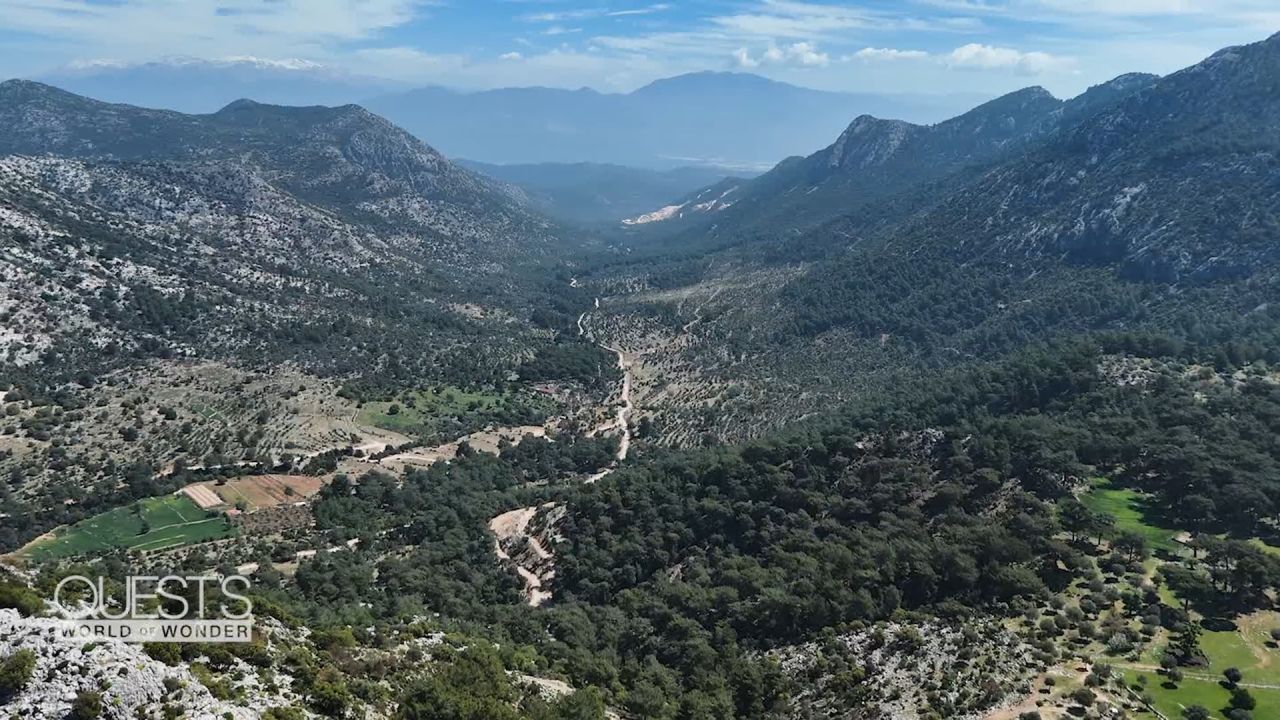Tree-covered peaks soaring from sparkling azure seas. Hiking trails that stretch for miles over rugged, beautiful and underexplored terrain. And enough food on offer to feed an army. This is Turkey’s Muğla Province.
Situated in the destination’s stunning southwest, it’s a region that, beyond a few hot spot destinations like Bodrum, is sometimes overlooked by international visitors.
Nonetheless, Muğla Province is filled with all the charms that make Turkey such a popular place to visit: arresting vistas; ample opportunities for some proper rest and relaxation; and adventure and excitement if you crave it. Plus, it’s served by Bodrum’s international airport, which means its easier than ever to visit.
An artist’s view
The best place to start is the sunny seaside town of Göcek, located between Fethiye and Dalyan. Culture is front and center in Göcek, thanks in no small part to renowned sculptor Dilara Akay.
Her gallery, set in a gorgeous garden, is a showcase for varied works charting the progress of her work throughout her life.
“Many people know me for my large garden sculptures, but I also make installations.
“You can see my evolution,” Akay says of her art. “I started, first finding out about existence and then being a woman. It turns out that I’m now more into nature, so it is a journey.”
That journey continues at sea, with Akay steering ahead to a small vessel, all the better to see the striking coastline, which is what Muğla Province is all about.
“We are in the bay of Göcek and Dalaman and Fethiye,” says Akay, excitedly waving her arms. This is the jewel, the mixing point of the Mediterranean and Aegean Seas.
According to some, including one insistent local man on the jetty, the eponymous Queen of Egypt is buried at the submerged Cleopatra’s Baths, or Hammam Bay.
The jury is still out on that one, but there’s no denying the fact that this is one of the most special corners of the Mediterranean. Being on a boat here allows you to dream. You can enter a fantasy world in which you spend your time serenely sailing the waters looked over by a sun filled sky.
Walking along the Lycian coast
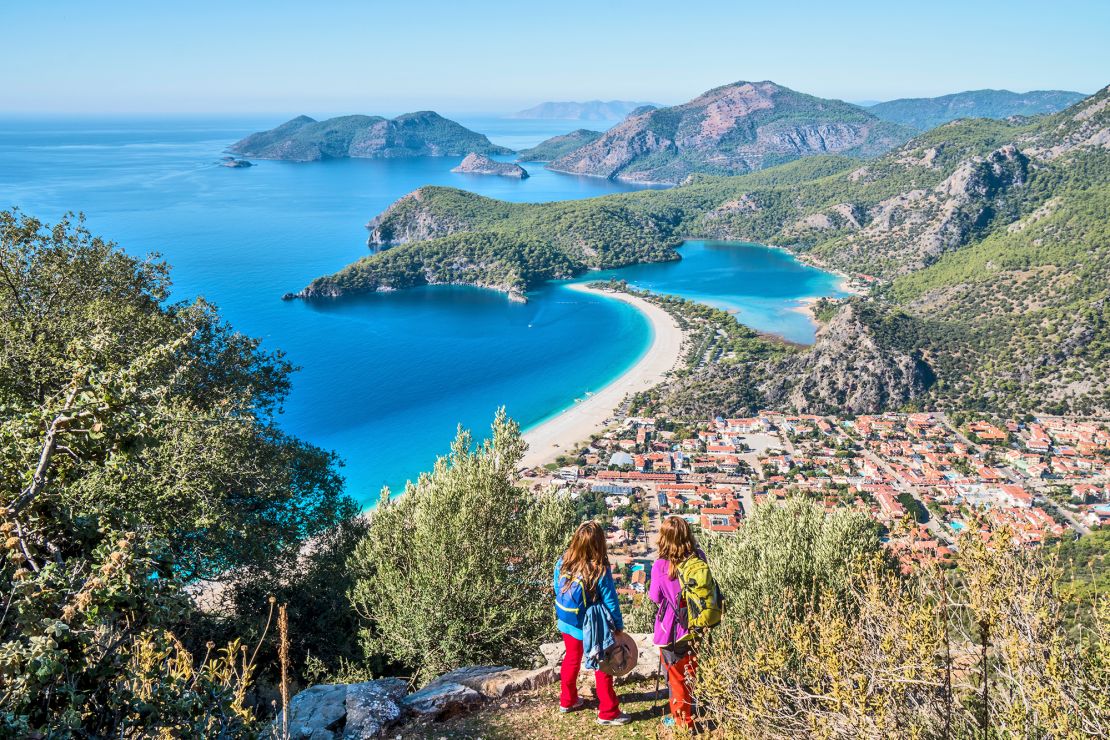
Back on dry land, there are other wonders to explore.
“No excuses,” exclaims The Lycian Way creator Kate Clow, leading the way along the iconic long distance footpath. Covering 760 kilometers and running from Fethiye to Antalya, the path takes 35 days to complete and follows the coastline of what was once known as Lycia, now a part of southern Turkey. It follows many of the routes the Lycians would have taken over thousands of years, during the times of the Persians, Alexander the Great and the Romans.
Mapping and marking the route was a colossal task, taking in Roman roads and old mule trails, and one which Clow did not shirk at.
“Turkey at that time, this is 35 years ago, didn’t have any walking routes at all. And I had been walking in the Pyrenees and in various other places in France and Spain,” says Clow, originally from the UK. “And I thought ‘Turkey deserves one too.’”
Heading high into the mountains, Clow’s route delivers absolutely remarkable views out to sea and across the high hills, which seem to roll on forever in the distance. It is truly one of the finest long-distance walking routes in the world and a testament to her ability and skill to create something fresh, yet deeply historic.
The beauty of it all is that it allows you to see the spectacular views, but from angles that you wouldn’t see from the road.
‘The good life’
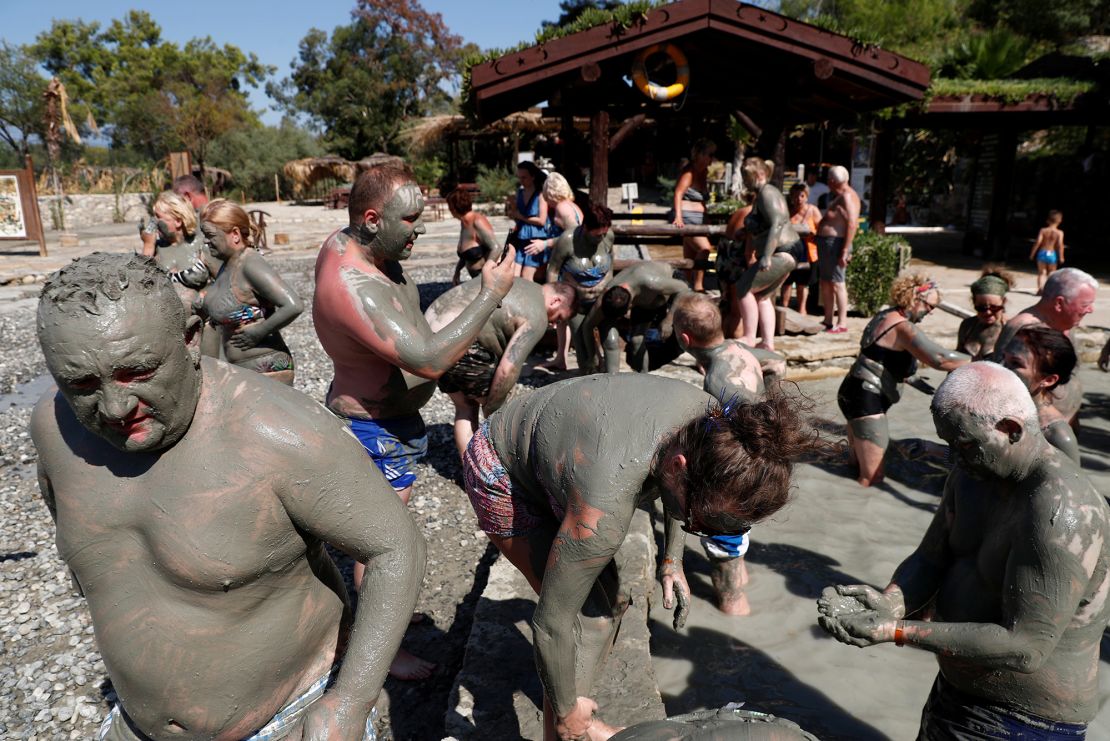
Turkey’s Yoruk community is often incorrectly referred to as nomadic. More accurately they practice transhumance – a word which describes people and livestock who move between summer and winter locations.
To mark the move, the community always throws a special party, featuring music, dance and even horse riding. As with everywhere else in Turkey, the food obsession is real.
With delicious soup and bread made over an open fire on offer, it appears feeding others is the driving force behind everything here, whether it’s a meal with Akay in her gallery or sharing locally made Turkish delight with the happy Yoruk.
All this food of course means that there’s a need to take it easy in the hours and days afterward. And that’s where Dalyan’s mud baths come in. These famous, yet somewhat smelly, baths are where locals and visitors come to rejuvenate their skin.
Sliding into the hot, gloopy water, the rising stench of sulfur hits the nostrils. But the feel of the mud on your body makes you want to linger, cover yourself some more and simply wallow.
“The good life,” remarks a local woman sitting and drying in the sun, the sea gently lapping at the wall behind her. It’s impossible not to agree. And it’s made all the better by a quick dip in the water from the adjacent pontoon, washing off the mud so you can emerge reborn and ready for more. They even say it takes 20 years off you.
Rivers and ruins
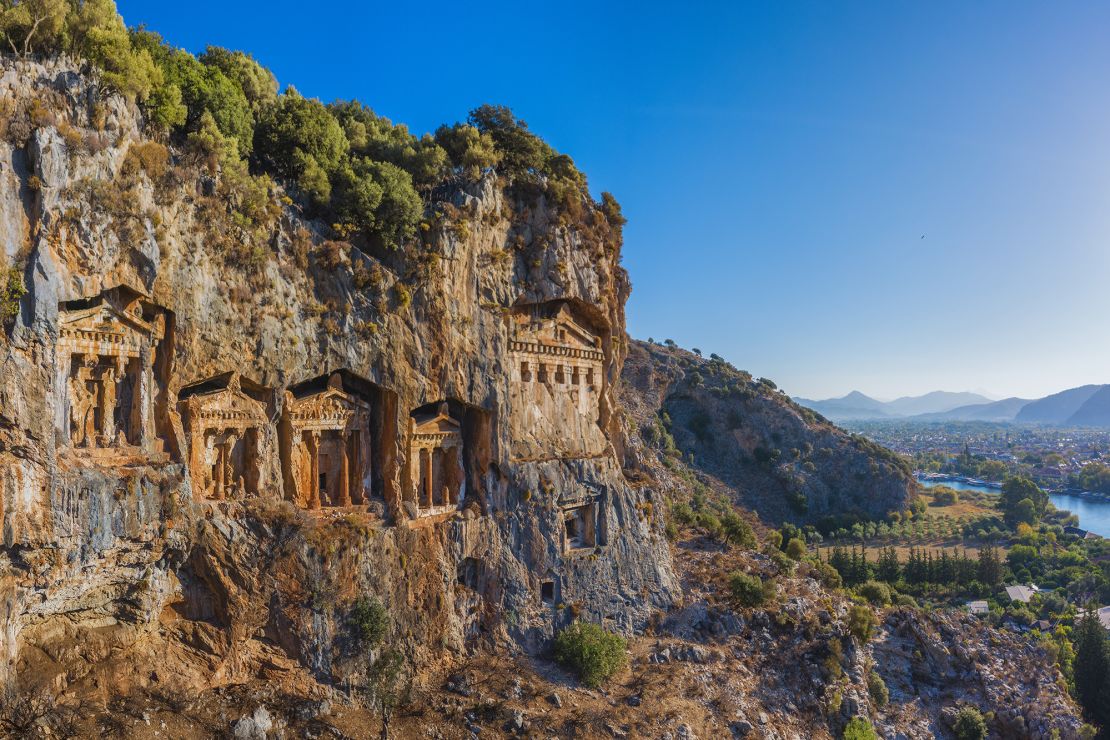
Everything in Muğla has a story.
The river here is said to have been created from the tears of Byblis, daughter of King Miletus.
According to Greek myth, Byblis cried a river, turning into a spring upon her death, after her twin brother Caunus rejected her advances.
That rather epic retelling brings extra meaning to a trip along the water to take in the stunning ruins of Ancient Kaunos, where the rock tombs of former kings are built into the high cliffs opposite Dalyan. Once an important port, yet now some eight kilometers from the sea, the ruins are said to date back as far as the 9th century.
The Roman Baths and ancient pathways are incredible, made all the better by the lack of crowds in high summer.
Into the air
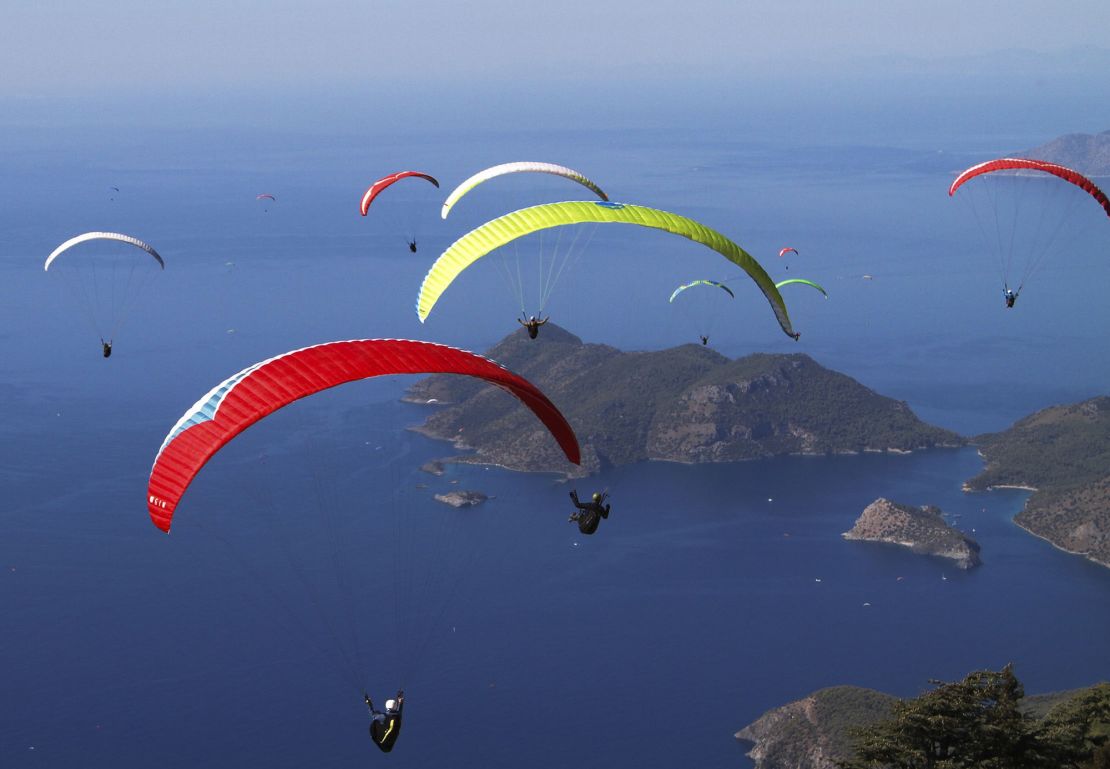
Muğla is also famous for paragliding. People come from around the world to take to the air and see the area’s delights from on high, riding the thermals from mountain to beach.
Babadağ, a mountain with a summit that is just shy of 2,000 meters above sea level, is where paragliders flock. There’s a dedicated launch pad at 1,700 meters, where gliders and those along for the ride can run and launch themselves into the sky.
Our guide, Ertas, sharp in a pair of colorful mirrored shades, takes us for a helmet and harness fitting.
“I’ve been doing this for 25 years now,” he says. “In a year I do it between 400 and 500 times.”
Strapped to Ertas’ back, the instruction is simple.
“Start walking and now run!”
Soon the parachute catches the wind and the ground becomes a distant memory. It’s simultaneously exciting and worrisome. The endless views, the blues of the sea and the whites of the beaches help make it a magnificent experience.
